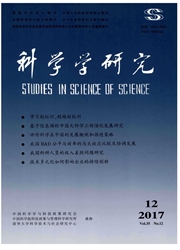

 中文摘要:
中文摘要:
规制性科学是指,在一定期限内,利用有限的科学证据制定标准,常见于生态、环境和公共卫生领域。我国在对雾霾中可吸入颗粒物PM2.5的标准制定中,出现了一种特殊的“反向规制”——对于雾霾的成因、现状、病理效应尚未有充分认知时,首先直接沿用世界卫生组织设定的PM2.5最宽限值,再逐渐开展针对我国雾霾限值的科学研究。反向规制因其过程的倒置性,只有在“好的科学”、“可用的科学”、“为谁的科学”这三个方面做出比常规规制更为严格的考量,才能承担起其本身负载的认知和伦理双重承诺,使我国PM2.5标准以实质的方式服务于公众健康、环境保护和绿色发展。
 英文摘要:
英文摘要:
Regulatory science is a kind of practice which can provide an insight into the pathway from limited scientific evidences to the formation of standard or policy during a certain period and often be employed in ecological, environmental and public health arena. Back - regulation refers to the phenomenon that China' s following WHO PM2.5 IT - 1 standard preceded domestic research and land - based regulation. So only when back - regulation process embraces principles ' good science' , ' usable science' and ' whose science' , can PM2.5 standard itself facilitates safeguarding public health,environment protection and green development substantially.
 同期刊论文项目
同期刊论文项目
 同项目期刊论文
同项目期刊论文
 期刊信息
期刊信息
